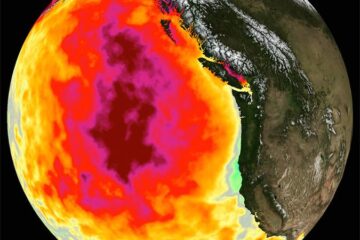Earth Sciences (also referred to as Geosciences), which deals with basic issues surrounding our planet, plays a vital role in the area of energy and raw materials supply.
Earth Sciences comprises subjects such as geology, geography, geological informatics, paleontology, mineralogy, petrography, crystallography, geophysics, geodesy, glaciology, cartography, photogrammetry, meteorology and seismology, early-warning systems, earthquake research and polar research.

Possible link to the Pleistocene epoch, the period of the Ice Ages? When the brightness of the star Betelgeuse dropped dramatically a few months ago, some observers suspected an impending…

Widespread wildfires in the far north aren’t just bigger; they’re different. “Zombie fires” and burning of fire-resistant vegetation are new features driving Arctic fires–with strong consequences for the global climate–warn…

A marine heatwave (ocean heatwave) is an extended period of time in which the water temperature in a particular ocean region is abnormally high. In recent years, heatwaves of this…

Bayreuth geoscientist discovers causes of sudden eruptions Tiny crystals, ten thousand times thinner than a human hair, can cause explosive volcanic eruptions. This surprising connection has recently been discovered by…

UAlberta PhD student authors paper shedding new light on Earth’s deepest mechanisms using information from diamonds. A new study led by a University of Alberta PhD student–and published in Nature–is…

Emerging use of Global Navigation Satellite System (GNSS) makes it possible to continuously measure shallow changes in elevation of Earth surface. A study by the University of Bonn now shows…